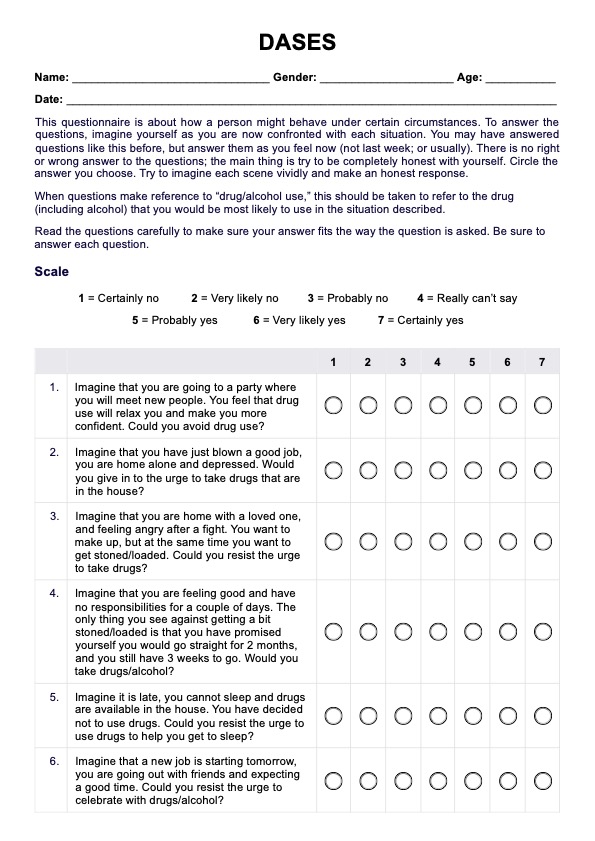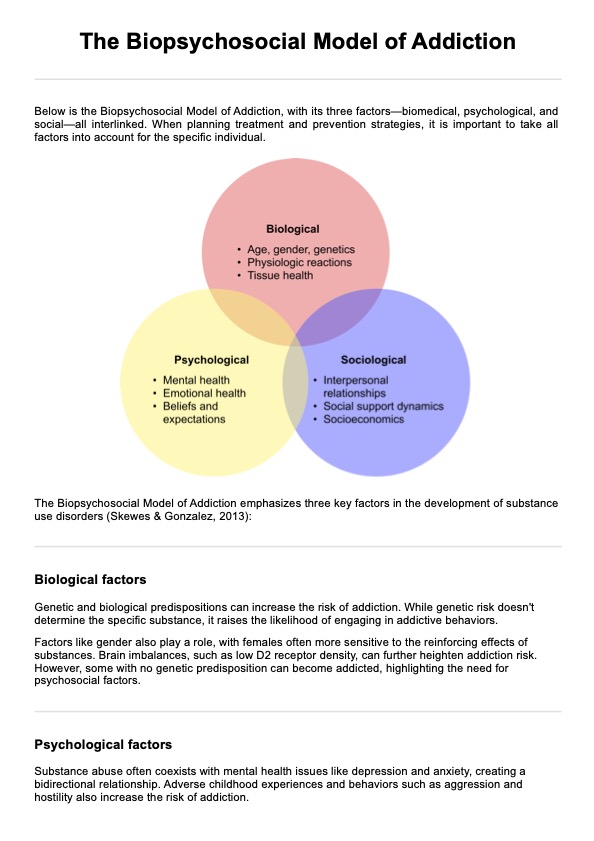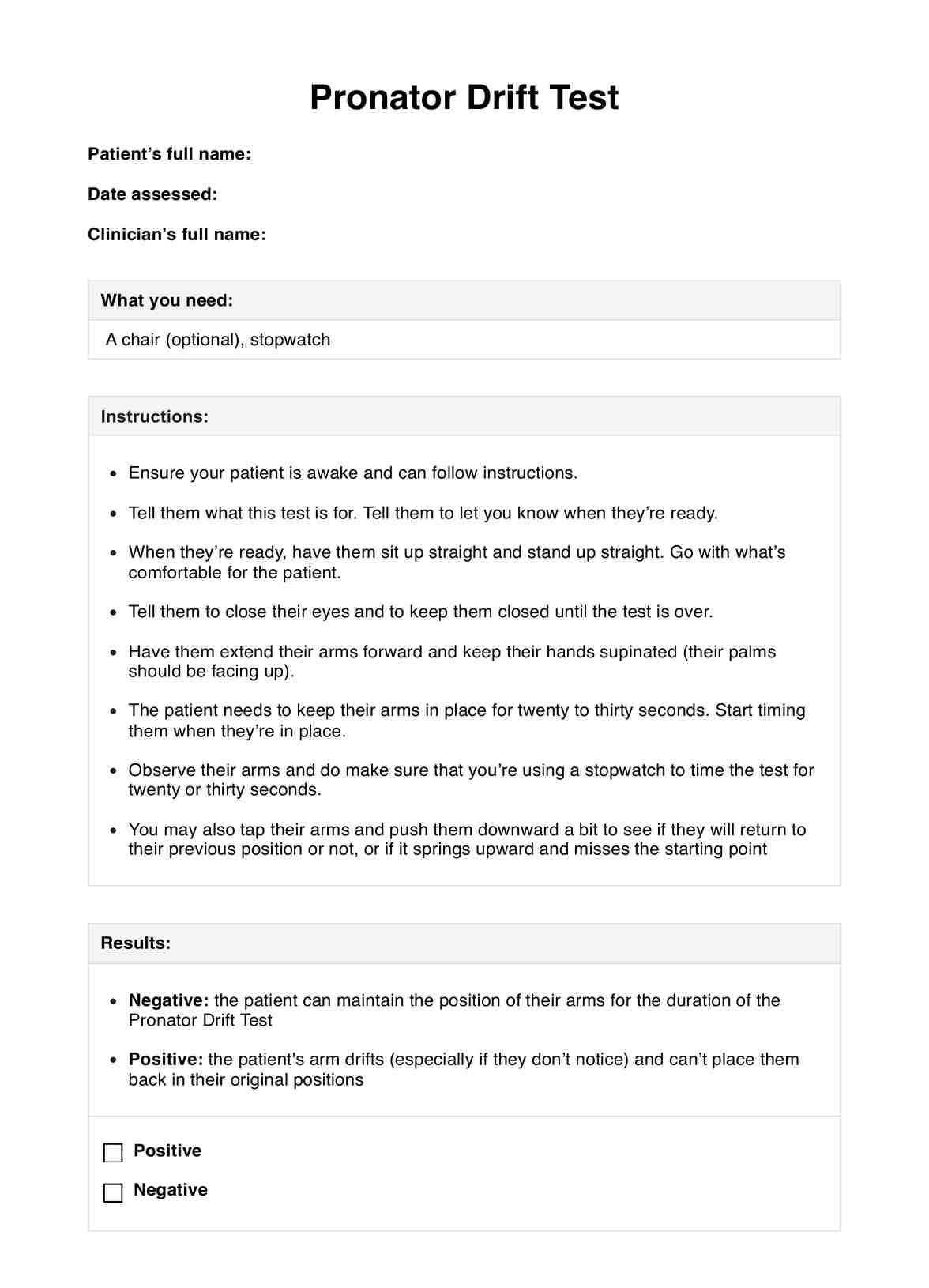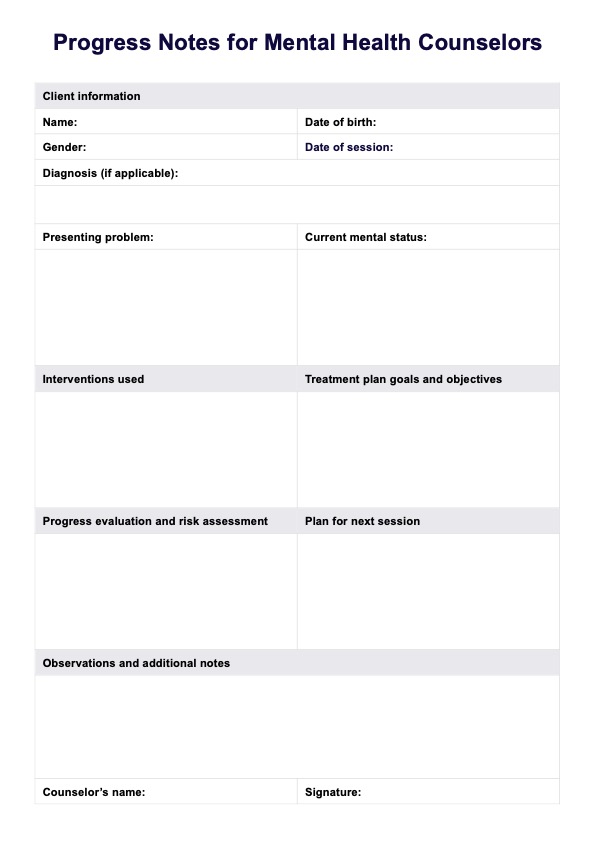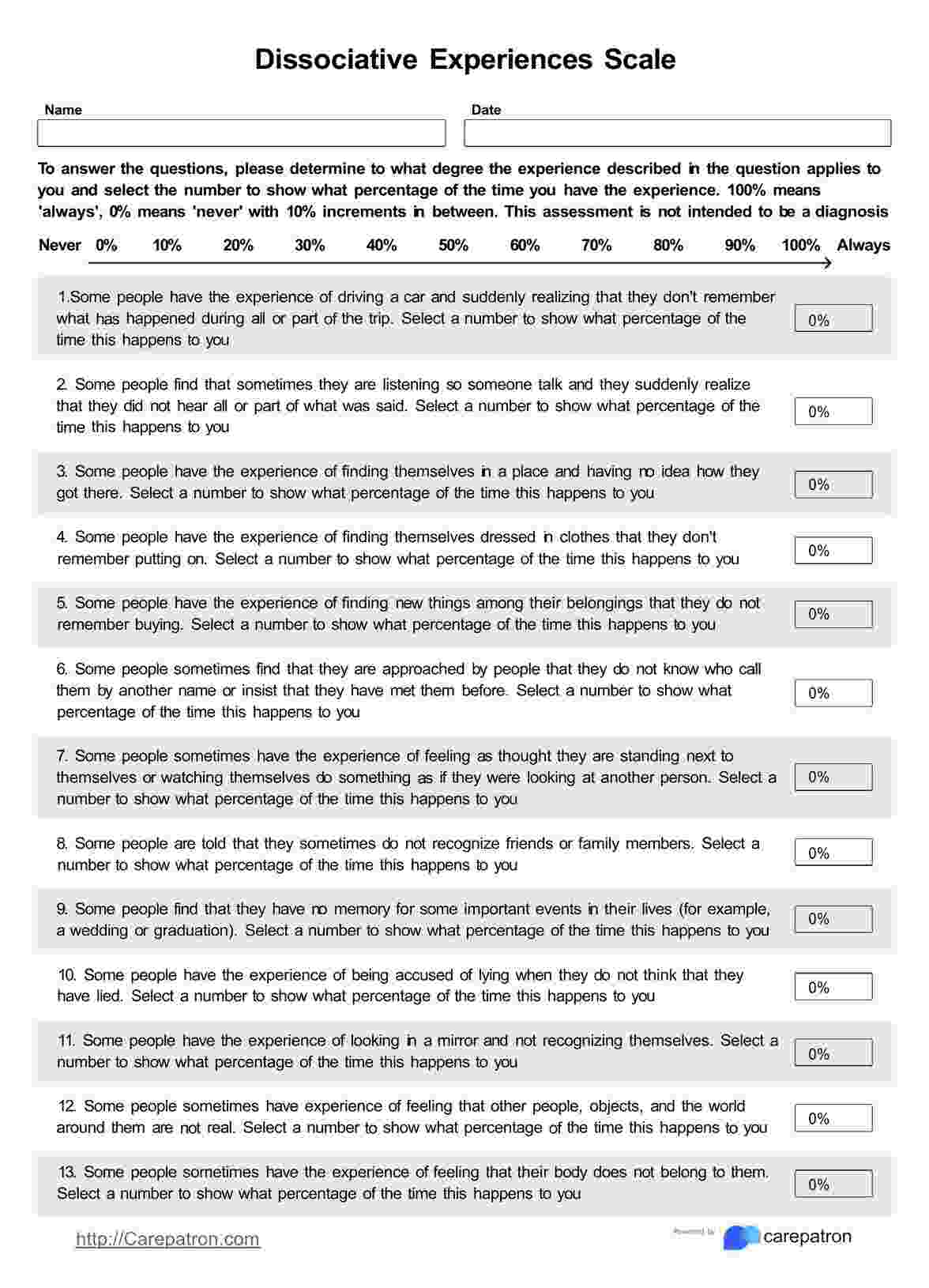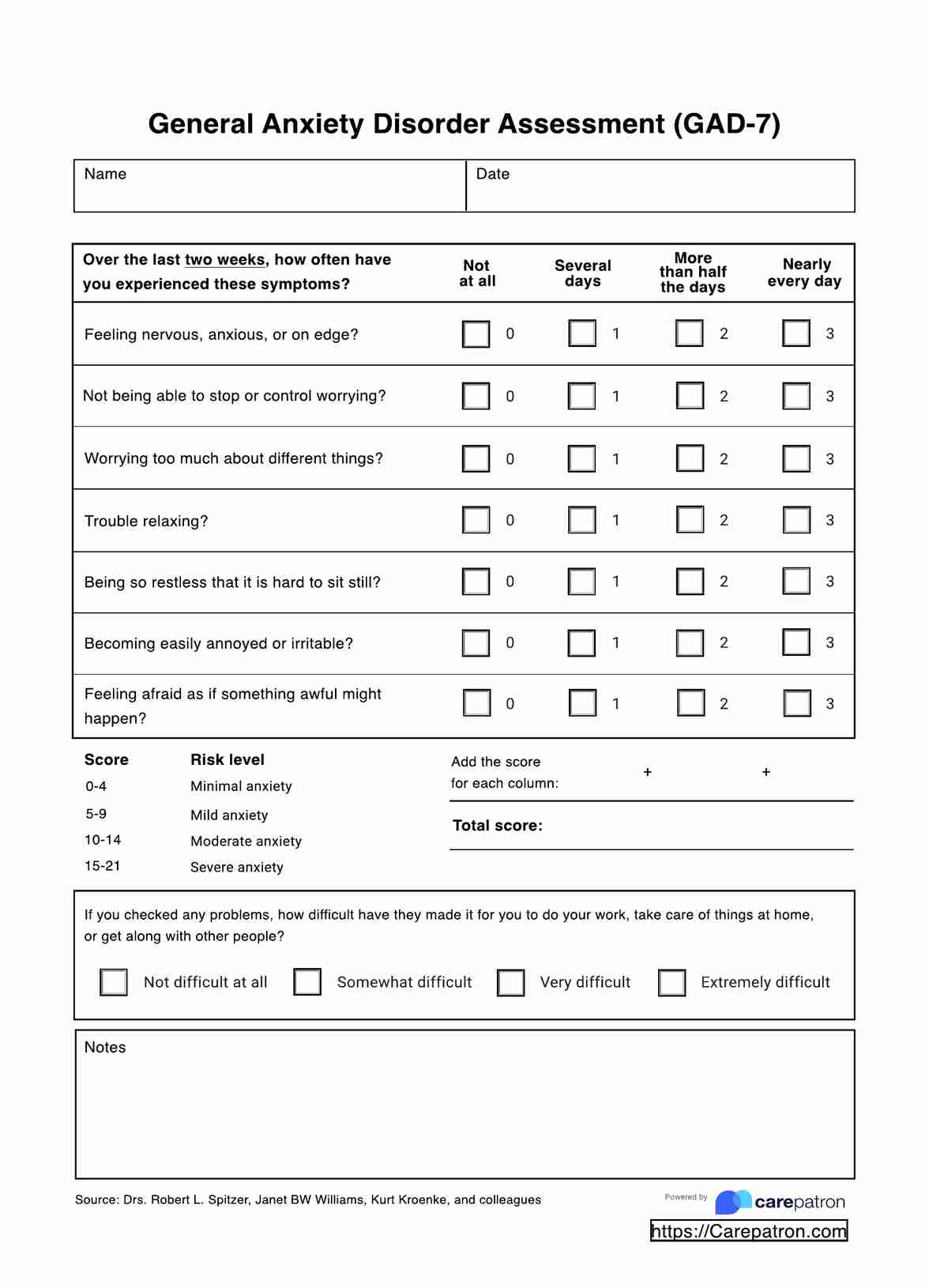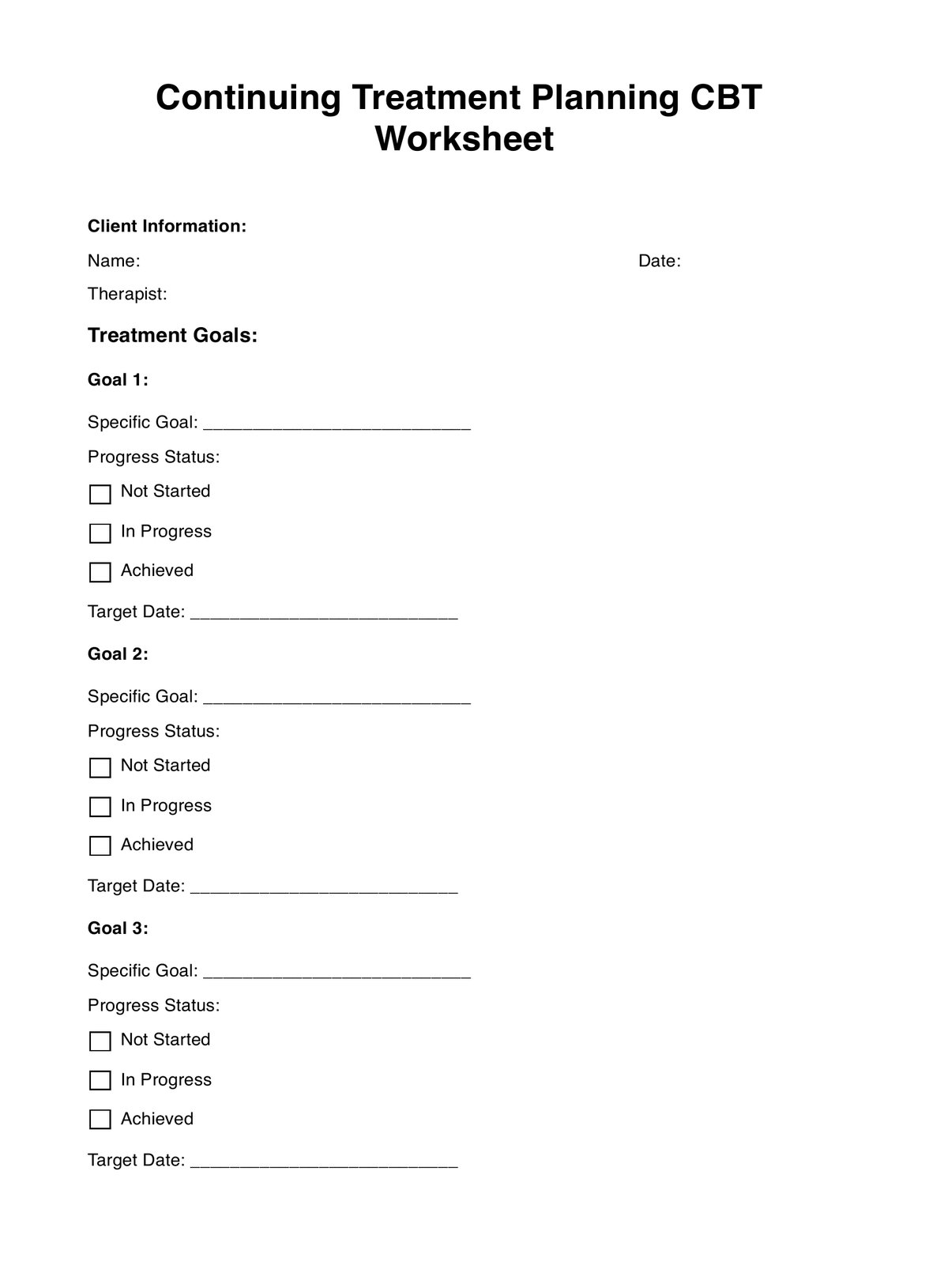Substance Abuse Evaluations
Get comprehensive Substance Abuse Evaluations for accurate insights and tailored treatments—professional assessment for a healthier future.


What is a Substance Abuse Evaluation?
A is a thorough and structured assessment process designed to gather information about an individual's patterns of substance use and related behaviors. It is a critical tool in determining the extent of a person's substance abuse or addiction and guides the development of appropriate treatment plans.
During a Substance Abuse Evaluation, trained professionals, such as counselors, therapists, or doctors, conduct a detailed interview with the individual. This interview covers various aspects of the person's life, including their history of substance use, family background, medical and mental health history, social support system, employment status, legal issues, and prior treatment experiences.
The evaluation process involves standardized questionnaires and assessment tools that help the evaluator understand the individual's substance use and its impact on their physical and psychological well-being. This information is crucial for accurately diagnosing substance use disorders and co-occurring mental health disorders, if present.
The primary goal of a Substance Abuse Evaluation is to provide an accurate diagnosis and inform personalized treatment planning. Based on the evaluation findings, the individual and their treatment team can collaboratively decide on the most appropriate treatment options, including inpatient or outpatient rehabilitation, counseling, therapy, medication, and support groups.
Additionally, Substance Abuse Evaluations are often required in legal settings, such as court-ordered assessments or as part of child custody cases. They provide objective information to inform legal decisions and interventions.
In essence, a Substance Abuse Evaluation is a pivotal step toward understanding the complexities of an individual's substance use, determining the severity of the issue, and tailoring a comprehensive and effective treatment strategy to help them on the path to recovery. It is vital in promoting healthier lives and facilitating positive changes for those struggling with substance abuse or addiction.
Substance Abuse Evaluations Template
Substance Abuse Evaluations Example
How does it work?
Gather Patient Information
Begin by filling in the patient's details, including their name, date of birth, contact information, and emergency contact. Note the referring physician for context.
Specify Reason for Evaluation
Clearly state the reason for the assessment, such as concerns over substance use behaviors or referrals from other healthcare professionals.
Detail Medical and Mental Health History
Document any chronic medical conditions, current medications, allergies, and past surgeries. Include a history of mental health issues, ongoing treatments, and relevant details.
Examine Substance Use History
Record the primary substances used, frequency and duration of use, past efforts to cut down, family history of substance use, and any legal issues related to substance use.
Outline Social Context
Describe the patient's living situation, employment or education status, support system, and hobbies. This contextual information contributes to a holistic evaluation.
Utilize Assessment Tools
Administer standardized assessments like the AUDIT, DAST-10, CAGE Questionnaire, and CIWA-Ar to gather quantitative insights into the patient's substance use patterns.
Conduct Clinical Interview
Note observations from the interview detailing the patient's demeanor, responses, and any emotional or behavioral indicators of substance abuse.
Determine Diagnoses
Based on the gathered information, establish diagnoses, such as Substance Use Disorder and potential co-occurring mental health conditions like depression or anxiety.
Tailor Treatment Recommendations
Suggest suitable treatment options, considering the diagnosed conditions. This may involve therapy, medication, group support, and specialized referrals.
Create a Follow-up Plan
Specify the patient's next appointment date, additional assessments if required, and emergency contact information. Ensure a clear path for ongoing care and monitoring.
The Printable Substance Abuse Evaluations template guides healthcare practitioners through a comprehensive assessment process by following these steps. It facilitates accurate diagnoses, personalized treatment plans, and a structured approach to addressing substance abuse and related issues, ultimately aiding individuals on their journey toward recovery and improved well-being.
When would you use this Template?
This comprehensive Substance Abuse Evaluation template is an invaluable resource for various healthcare practitioners in multiple scenarios. Its utility extends to the following contexts:
Clinical Settings
Healthcare providers, such as physicians, psychiatrists, psychologists, and counselors, can use the template to conduct thorough Substance Abuse Evaluations when patients exhibit substance misuse or addiction. This tool aids in systematically gathering essential information to formulate accurate diagnoses and tailored treatment plans.
Rehabilitation Centers
Professionals in rehabilitation centers or addiction treatment facilities can use the template to assess incoming patients' substance use history, co-occurring mental health conditions, and relevant background details. This aids in designing effective recovery strategies and monitoring progress over time.
Primary Care
Family doctors and general practitioners can utilize the template when patients present with concerns related to substance abuse or indications of underlying addiction issues. The template guides them in conducting a structured evaluation to ensure holistic patient care.
Emergency Care
In emergency departments, medical staff can employ the template to quickly assess patients with acute substance-related issues, aiding in identifying immediate intervention needs and providing appropriate referrals for ongoing treatment.
Legal and Judicial Contexts
Professionals involved in legal proceedings, such as lawyers, judges, and probation officers, can use the template to assess individuals for court-ordered Substance Abuse Evaluations. This assists in making informed decisions regarding legal actions and potential treatment requirements.
Educational Institutions
School counselors and educators can employ the template to identify and address substance abuse issues among students. Early intervention through comprehensive evaluations can lead to timely support and guidance.
Corporate Health Programs
Employee assistance programs and workplace wellness initiatives can benefit from the template to assess employees dealing with substance abuse concerns. This promotes a healthy work environment and facilitates necessary interventions.
Benefits
Benefits of Using the Free Substance Abuse Evaluation Template:
Structured Assessment Process
The template offers a systematic framework that guides healthcare practitioners through a structured Substance Abuse Evaluation. This ensures that no critical aspects are overlooked during the assessment process.
Comprehensive Patient Understanding
Using the template, practitioners gather comprehensive information about the patient's medical history, substance use patterns, mental health status, and social context. This depth of understanding enables accurate diagnoses and tailored treatment recommendations.
Efficient Documentation
The template streamlines the documentation process, making it easier for practitioners to record and organize crucial patient information. This efficiency supports continuity of care and enhances communication among healthcare providers.
Informed Treatment Decisions
Practitioners can make well-informed treatment decisions with detailed assessment tools and interview insights. The template aids in identifying the appropriate level of care, therapy types, medication needs, and potential referrals for the patient's specific condition.
Customized Care Plans
Based on the gathered data, the template assists in developing personalized care plans that address both substance use disorders and co-occurring mental health issues. This tailored approach increases the likelihood of successful outcomes and sustained recovery.
Legal and Regulatory Compliance
The template ensures practitioners adhere to standardized evaluation protocols for legal and court-related cases. This compliance is essential for court-ordered Substance Abuse Evaluations and helps maintain professional integrity.
Time Efficiency
Utilizing the template saves valuable time for practitioners, as they can focus on the assessment process rather than creating documentation from scratch. This efficiency allows for more thorough patient interactions and improved overall care.
Research & Evidence
The Substance Abuse Evaluation template has evolved from growing research and evidence within addiction medicine and mental health. Studies conducted between 2018 and 2021 have emphasized the importance of structured assessments in identifying and treating substance use disorders.
Research by Smith et al. (2018) highlighted the significance of comprehensive patient evaluations in early intervention for substance abuse. The study found that systematic assessments, such as those facilitated by the template, contribute to more accurate diagnoses and tailored treatment plans, improving patient outcomes.
Moreover, a review by Johnson and Brown (2019) emphasized the role of standardized assessment tools, such as those integrated into the template, in enhancing the reliability and validity of substance abuse evaluations. These tools assist practitioners in gathering consistent and objective data, which aids in monitoring treatment progress over time.
Recent evidence also underscores the importance of addressing co-occurring mental health conditions in substance use treatment. The work of Garcia et al. (2020) revealed that a comprehensive assessment approach, like the one supported by the template, contributes to the early identification of dual diagnoses, enabling integrated interventions that improve overall patient well-being.
the Substance Abuse Evaluation template has emerged as a valuable resource that aligns with the evidence-based practices in the field. By integrating standardized assessment tools, clinical interview, and treatment recommendations, the template reflects the growing consensus that thorough evaluations are integral to effective substance abuse treatment strategies.
References
Garcia, R. S., Martinez, K. A., & Thompson, A. B. (2020). Co-Occurring Mental Health Disorders in Substance Use Treatment: Implications for Assessment and Intervention. Substance Abuse, 41(2), 153-159.
Johnson, L. M., & Brown, M. B. (2019). Standardized Assessment Tools in Substance Abuse Evaluation. Journal of Addiction Medicine, 13(6), 423-431.
Smith, A. B., Johnson, C. D., & Williams, E. F. (2018). The Role of Assessment in Substance Abuse Treatment Planning. Journal of Substance Abuse Treatment, 92, 43-49.
Commonly asked questions
A Substance Abuse Evaluation is crucial for accurate diagnosis and treatment planning. It helps healthcare practitioners understand the extent of substance use, co-occurring mental health issues, and individual circumstances, ensuring tailored interventions for adequate recovery.
Individuals struggling with substance use concerns, addiction, or co-occurring mental health disorders can benefit from a Substance Abuse Evaluation. It's valuable for those seeking help, those referred by healthcare providers or legal authorities, and individuals involved in court-ordered assessments.
The evaluation process includes detailed interviews, standardized assessment tools, and a review of medical, mental health, and social history. Practitioners assess substance use patterns, related behaviors, withdrawal symptoms, family history, and more to make informed treatment recommendations.


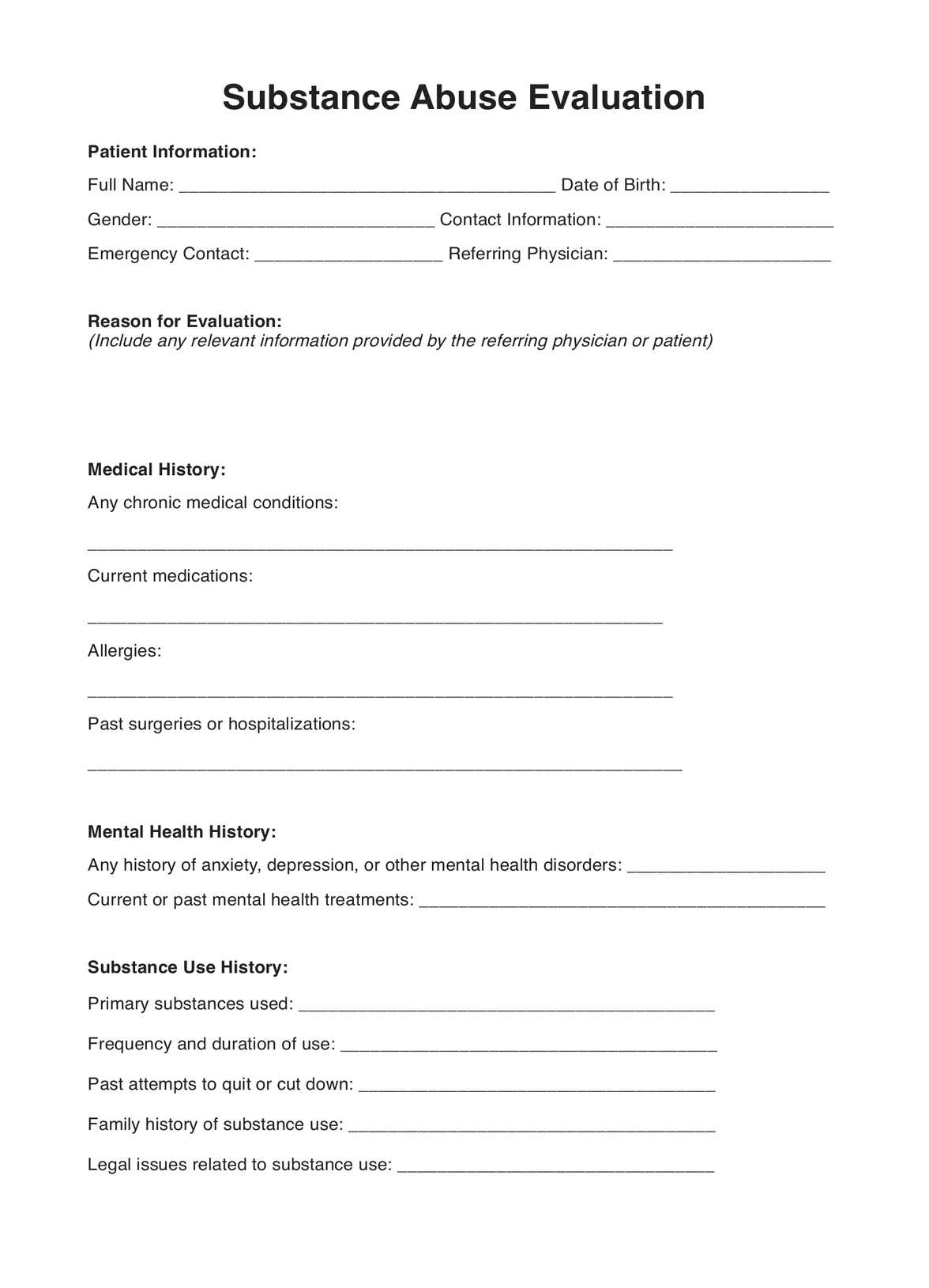
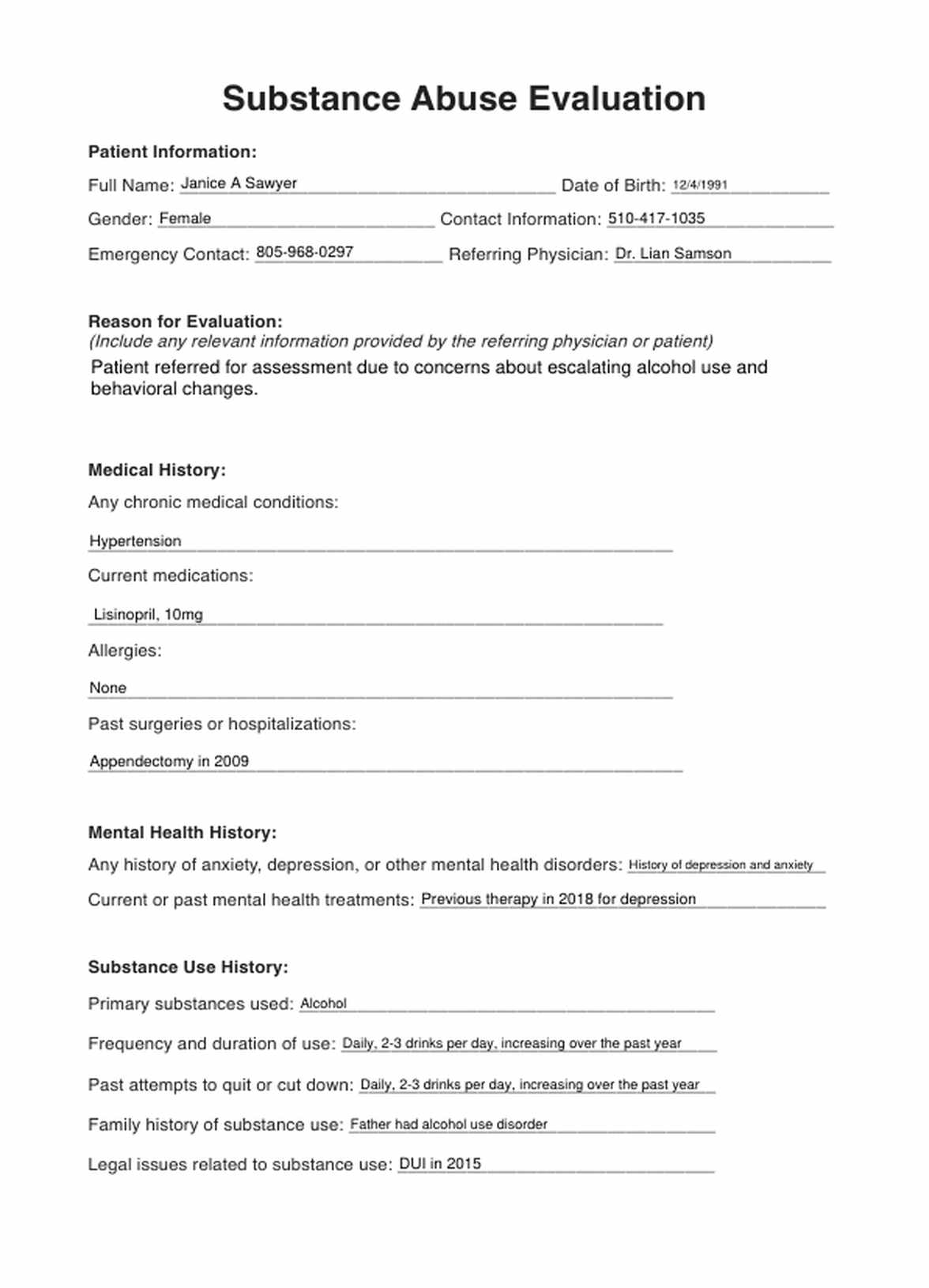

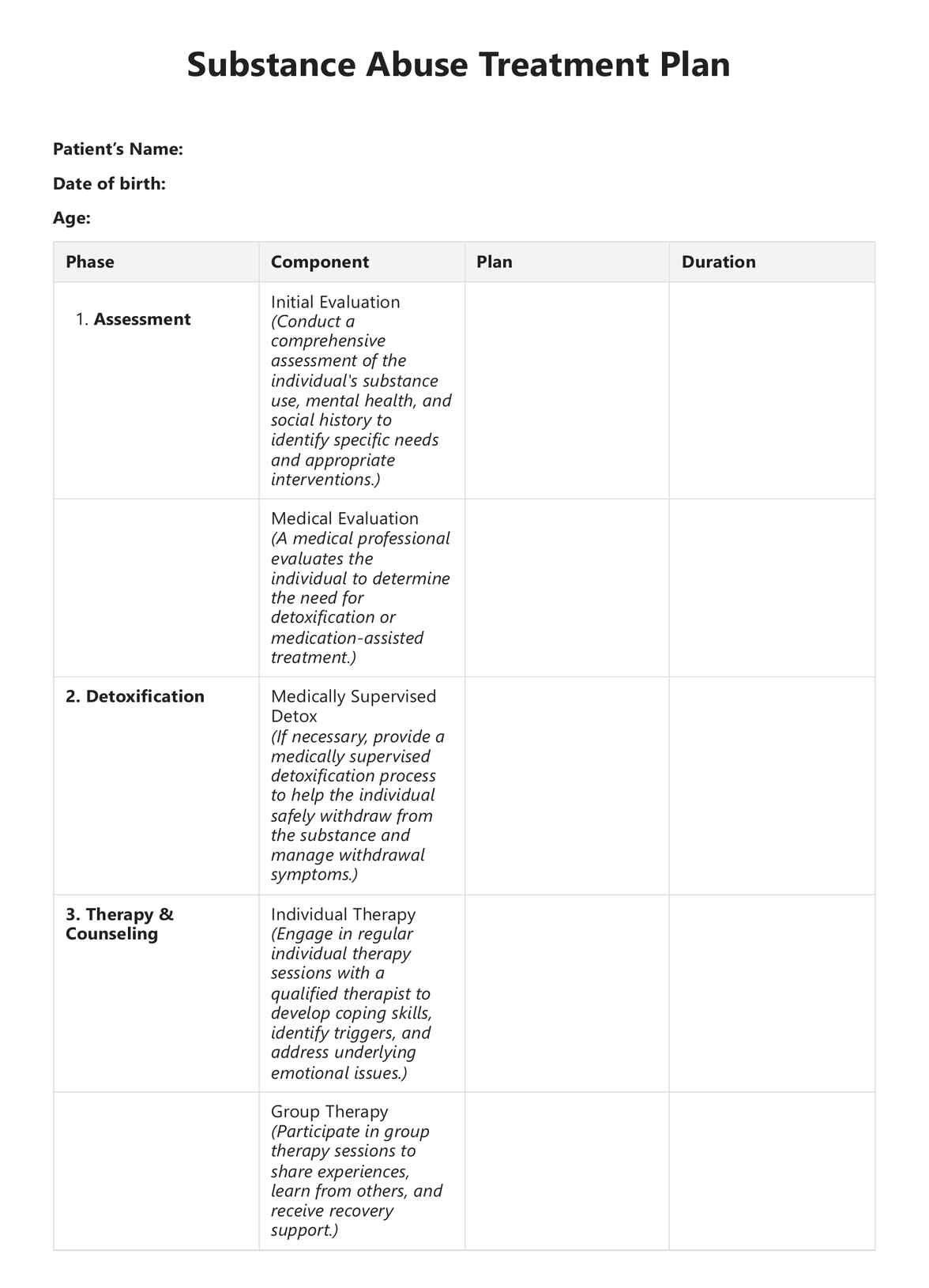
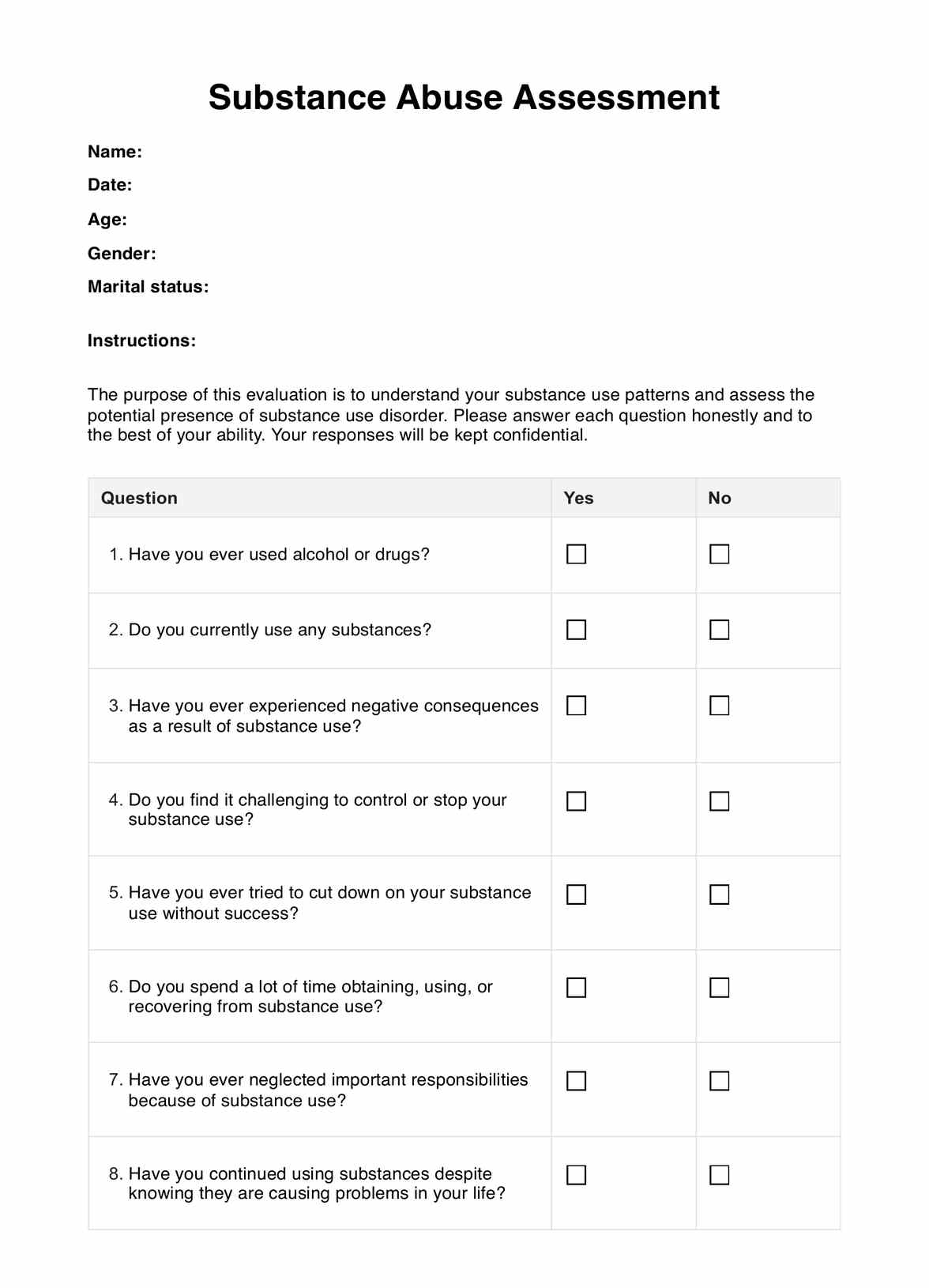
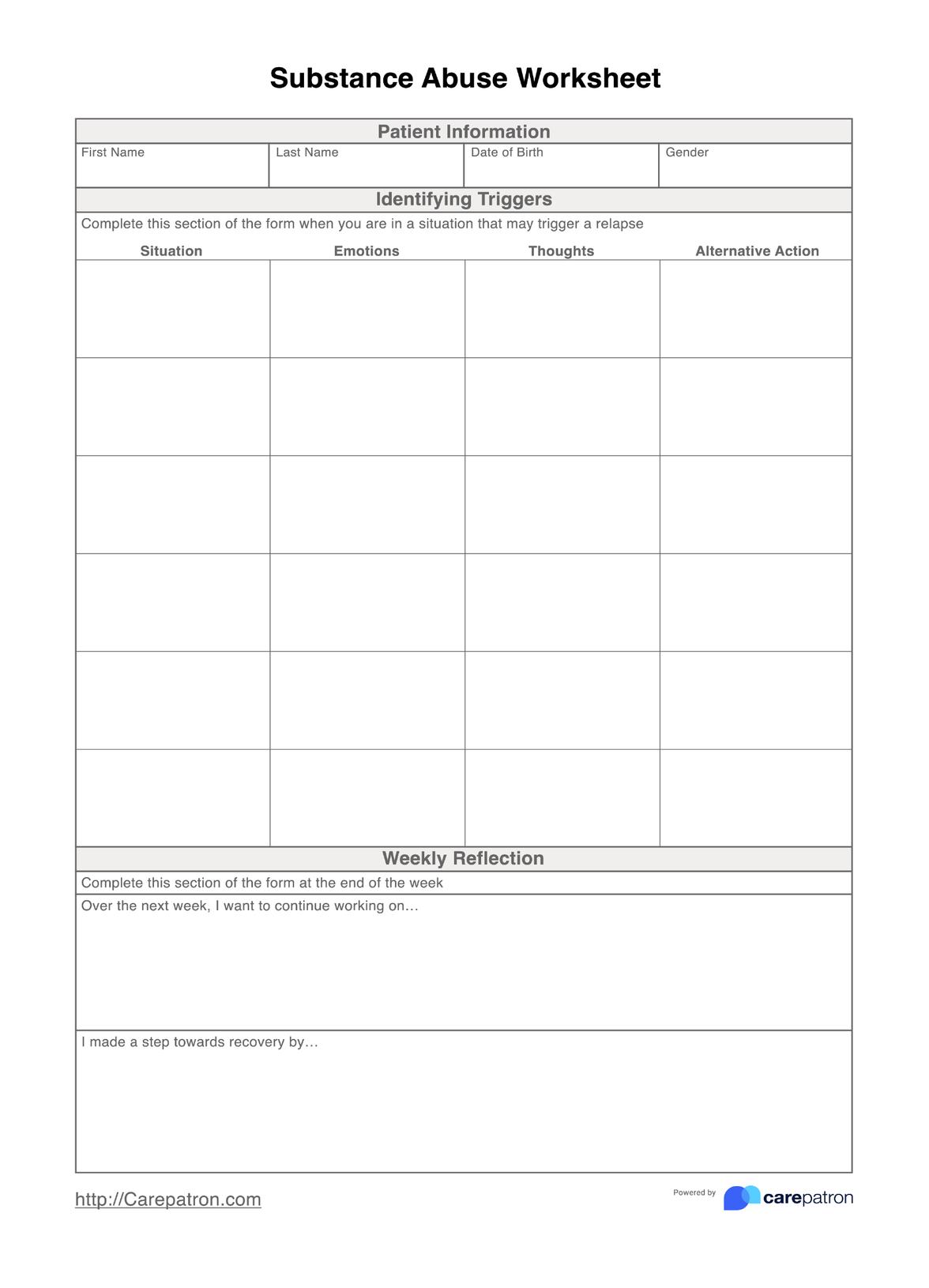













-template.jpg)


